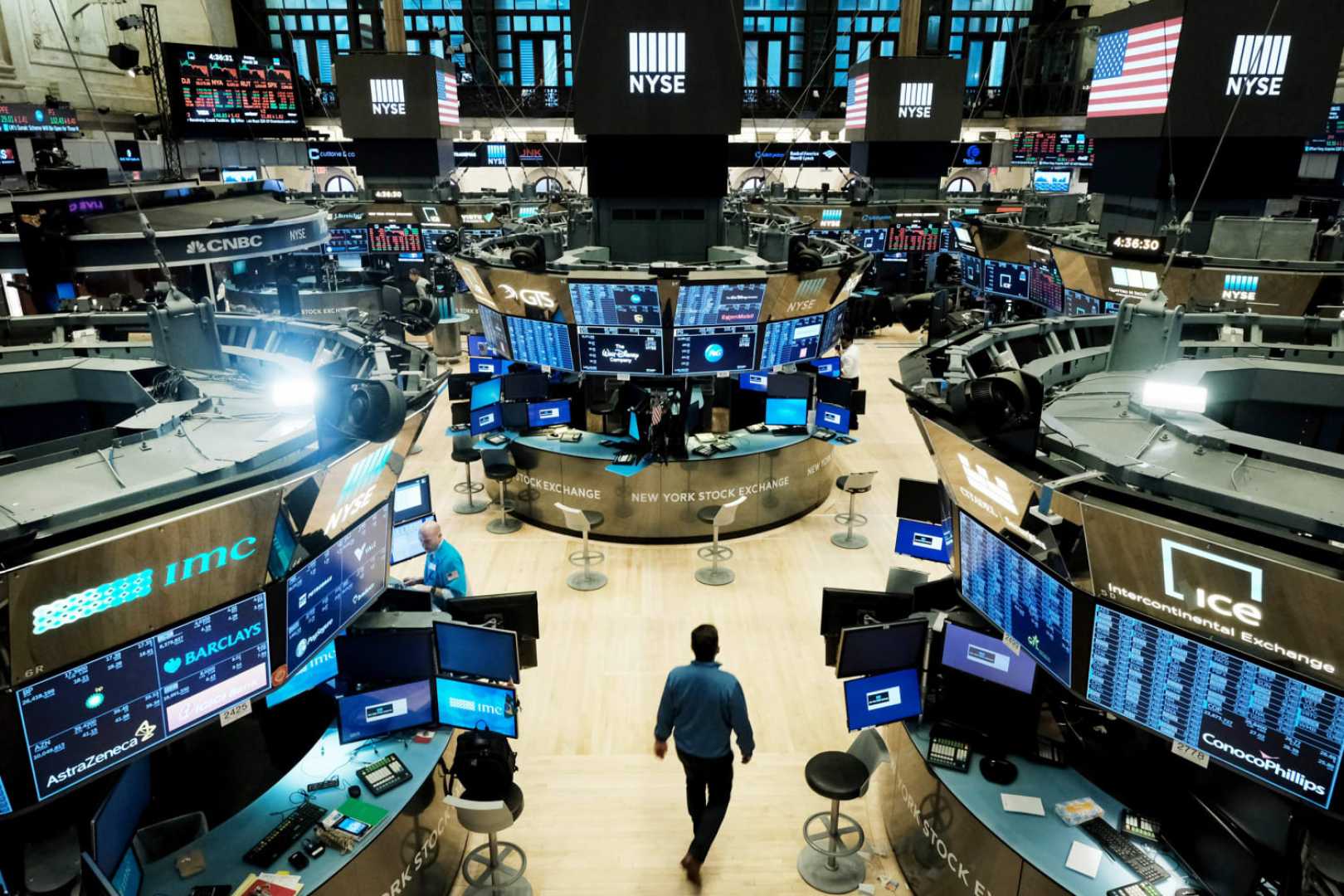Business
US Stocks Plummet Amid Tariff Confusion and Trade War Escalation

NEW YORK — The U.S. stock market faced a sharp decline on Thursday as the White House clarified details regarding a new 145% tariff on imports from China, intensifying an already volatile trade conflict. The Dow Jones Industrial Average dropped 1,015 points, or 2.5%, after a record surge the previous day, showcasing the significant impact of trade policy on the market.
The S&P 500 fell 3.46% and the Nasdaq Composite slid 4.31% amid concerns over the economic ramifications of President Donald Trump‘s handling of tariffs. The downturn came on the heels of an optimistic trading day on Wednesday, which marked the S&P 500’s best performance since 2008.
Despite a temporary suspension of some tariffs, the administration’s announcement that the cumulative tariff on Chinese goods totals 145% sent shockwaves through the market. Trump had initially indicated a desire to ease tensions, but later acknowledged that transition difficulties were inevitable. “There will always be transition difficulty — but in history, it was the biggest day in history, the markets,” Trump stated, attempting to balance optimism with the realities of economic fallout.
The U.S. dollar weakened significantly, falling 1.7% to its lowest point since early October, signaling investor anxiety regarding the stability of the economy. In contrast, gold prices soared to a record high of $3,170 per troy ounce, as investors sought safe havens amid uncertainty.
While some investors welcomed the temporary pause on reciprocal tariffs, skepticism remains. Leading economic firms like Goldman Sachs and JPMorgan have warned of a significant recession risk, estimating a 60% chance of economic downturn even after Trump’s tariff adjustments. Joe Brusuelas, chief economist at RSM, expressed concern: “My sense here is that the [U.S.] economy is still likely to fall into recession, given the level of simultaneous shocks it’s absorbed.”
The CBOE Volatility Index, known as Wall Street’s fear gauge, surged 40%, indicating heightened market anxiety. Investors are closely monitoring inflation data, which showed a sharp slowdown in March. However, analysts like Skyler Weinand of Regan Capital argue, “Thursday’s data is backward-looking and doesn’t tell the market much about how the recent tariffs are affecting consumer prices.”
In an unusual twist, the market had initially reacted positively to Trump’s temporary suspension of certain tariffs on countries, except for China, amid talks for future trade agreements. Treasury Secretary Scott Bessent indicated that over 70 nations were negotiating deals with the U.S.
However, the president’s clarifications on the tariffs, alongside Beijing’s retaliatory measures—such as an 84% tariff on U.S. imports—have exacerbated tensions. China’s Ministry of Commerce stressed the importance of mutual respect in negotiations, warning that further U.S. actions would elicit strong responses.
Many prominent investors voiced their concerns about the implications of Trump’s tariff stance. Ray Dalio, a billionaire investor, commended the pause but cautioned about the long-term impact of protracted trade conflicts, advocating for diplomatic resolutions.
The bond market reflected similar volatility, as Treasury yields experienced a slight decrease from dramatic highs earlier in the week. The 10-year Treasury yield hovered above 4.3%, casting doubt on investor confidence.
Oil prices fell to below $60 per barrel, responding to trade war uncertainties, with crude oil dropping significantly over the past week.
Internationally, markets reacted differently, with Asia’s major indexes showing gains. Japan’s Nikkei 225 index rose over 9%, while European stocks also surged on the heels of Trump’s tariff announcements, as European Commission President Ursula von der Leyen welcomed the U.S. decision as a stabilizing factor for the global economy.
As the trade war evolves, the future remains uncertain, with analysts predicting that fleeting relief may be overshadowed by the fundamental economic challenges posed by ongoing tariff disputes. “Delays help, but do not reduce uncertainty,” said Morgan Stanley’s Michael Gapen, reflecting market sentiment moving forward.












